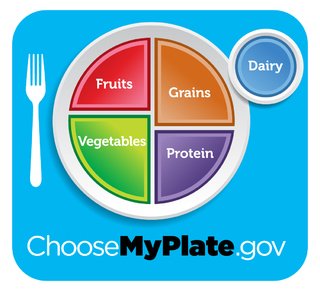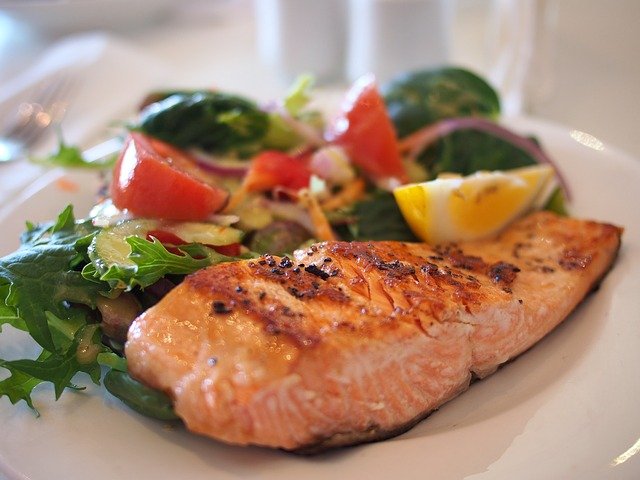Questioning the Standard American Diet for Health, Performance, and Longevity: Part 1 of 3
For the past several months, I've been interested in exploring what it would take for me to move toward vegetarianism. I'm pretty sure "cold turkey" (or is it "cold tofu"?) isn't an option. I'm not at all sure I've got what it takes to commit in any case, but I want to take a look at what other people have done to make that transition and what it has done for them (or to them) during and after the process. What's more, I suspect that the move toward veganism is something I should do for a number of reasons outside myself, but more on that in subsequent posts. In particular, I'm interested in the anti-aging effects of vegetarianism, so I'll start from that vantage-point.

It isn't what got me interested in the concept of alternative -- meaning alternative to the Standard American Diet (SAD) -- with which those of us in the US are familiar, but I recently watched a Netflix documentary entitled What the Health. I don't intend to do a review of the film here, but just to bring up the fact that the film raised a number of questions that had been going through my own mind for some time now. Among them: For whom is the SAD a good thing? We have a pretty good sense by now that lots of healthy people thrive on plant-based diets, but the film points to health implications related to meat-eating beyond the expected heart-disease, such as diabetes. I didn't exactly take notes on the film, but I can recommend it for having a goodly number of resources, mostly drawn from documentation found on governmental agency websites whose diet-related recommendations overtly conflict with one-another across agencies and are apparently sponsored by the various food industries implicated by various studies as being not as healthy as we have been made to believe.
So as I began to think about some of the recent, interesting things I've read in regards to why we might benefit from deviating from SAD (aside from the fact that it's a pretty unfortunate acronym), I started by looking for groups of people who have a statistical tendency to outlive the rest of us.
As it happens, one of the first articles I found in my on-line research travels hit upon a subject I'd read about a couple of weeks earlier just by happenstance. Did you know that there is an American subpopulation that outlives other average Americans by a margin of eight to ten years? It's true. That group is the Seventh Day Adventists. I myself am not a religious person and in fact know little more about these people than they "don't smoke, drink alcohol or consume caffeine," and "consume a mostly vegetarian diet," but I'm not opposed borrowing some of the best moves of a particular group of Californians that have proven they consistently beat the odds by more than 10%. Besides, my keen eye caught the word "mostly" tucked in before the mention of the vegetarian diet. And according to the further findings of the article, Greeks from Ikara, Costa Ricans from Nicoya and Okinawans (all coastal or island regions) significantly outlive as well. The article doesn't exactly dwell on the subject, but you'd have to think that the other items on these "mostly vegetarian" plates might be fresh fish and seafood, given the geographic similarities among the studied "Blue Zones."

"Pescatarian" is a moniker I can warm up to much more easily than, say, "vegan." What can I say? The flesh is weak -- and also, unfortunately, delicious. Besides, I hear it's high in mercury.
But I'm not willing to make a life change based on an article written for my dad, I still have some good years and want to be strong and vibrant. Is this even possible if you're laying off animal protein? Well, of course most of us by now have seen any number of pics and videos of simultaneously swole yet lithe vegan bodybuilders and endurance athletes, but I’m compelled with something more odd: a vegan power-lifter. Not just that -- a record holding power-lifter (and not just among other vegans -- carnivores, too).
I'll cover that in the second post of three in this short series... hope to see you there.
And if you take issue with anything I've written, or have a comment of any kind, please reach out -- I'll look forward to hearing from you!
Was Vegan for three years! Good luck in your journey!!
Thanks, @bedoodle. Are you still vegan, or did you eventually change to something else?
I am no longer vegan. I converted back over about 3 years ago. I was vegan for 3+ years. I still don't eat beef or lamb but eat most everything else. I found that I was eating too much soy and it messes with estrogen levels in both women and men. I enjoyed being vegan but found it too difficult with my schedule and lifestyle.